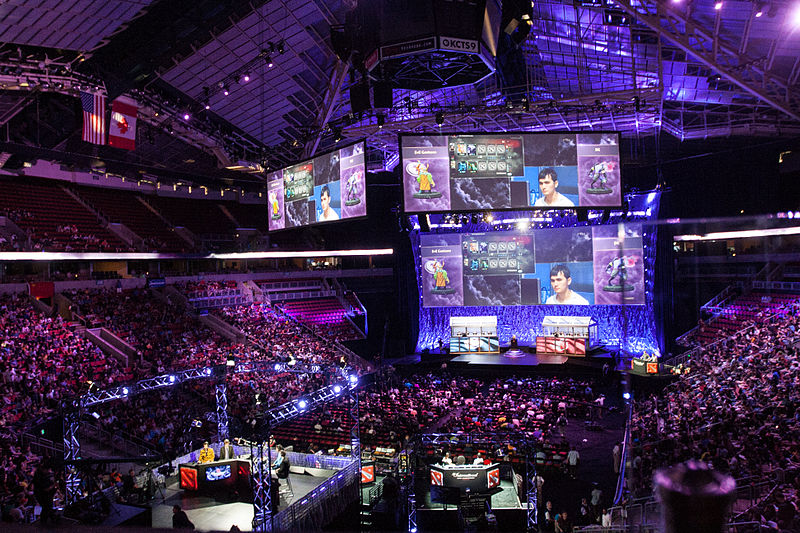For years, going back to the Pong consoles and arcades of the 1970s, video games were considered novelties, time-wasters and even a fad that would fade away.
In 2018, more people watched the League of Legends World Championships than the Super Bowl. And esports — literally professional, spectator-driven video gaming — is only getting bigger.
In Delaware, esports hasn’t made a big splash just yet. University of Delaware has an EGF esports team, with an arena that launched last year, but as far as organized local teams and live gaming events, the state seemed to be falling behind when it came to an industry that is exploding in places like Philadelphia, where the Wells Fargo Center hosted the Global Overwatch Finals last September, and the Fusion Arena, soon to be home of the official Overwatch team Philadelphia Fusion, is slated for a 2021 launch.
Stephen Sye, Malcolm Coley, Newdy Felton and Ronald Berry want to change that with Futures First Gaming, an esports startup that combines competitive gaming events and team formation with education and access.
“Futures First Gaming is an esports and STEM education company,” said Sye, the company’s CEO as well as the executive director of the Pete du Pont Freedom Foundation. “Delaware has the potential to be a mecca for esports. Our premise is based on the philosophy that futures begin with gaming, because it can lead to a number of career opportunities in STEM and the esports industry.”
Futures First has four core pillars:
- Foster a sense of community to grow the industry in Delaware — This includes holding both online and in-person (when it’s safe) events around esports and gaming. Currently, the company has a presence on the gaming chat application Discord, as well as online open play events across a number of gaming titles such as Fortnight, Rocket League, Madden, and Call of Duty.
- Develop talent — “We can be a pipeline for esports talent to the more than 175 universities that have varsity esports programs,” Sye said. “By recognizing talent, we’re able to partner with universities.” The partners are currently working to establish and sponsor an official Futures First Gaming team across a number of titles to compete on the regional, national and potentially global competition level.
- An education component called the Futures First Camp — It’s a combination of gaming, coding, game design and entrepreneurship, designed to be conducted in person or digitally. This component fosters inclusion and access for underrepresented gamers.
- Esports club development — “We work with organizations, community centers, schools or whomever is interested in launching an esports program, and we help them launch it from the ground up,” Sye said. Futures First helps them form their club, establish their charter, choose the right game titles, establish a working schedule, set up seasons, and teaches them how to host and livestream. Weekly club meeting include education on eSports and include a career path program.
A couple of weeks ago, First Futures launched its first esports club, at Sye’s alma mater, Tower Hill School in Wilmington.
“I went to an alumni event and I was talking with the director of alumni relations about our kids and video games and I asked if they did esports, and the rest is history,” he said.
The Tower Hill program plays the vehicular soccer game Rocket League, and is rooted in career development.
“For the launch a couple of weeks ago, we assigned them to take a look at the career path of opportunities,” Sye said, “and if they see a career that interests them, their project is to develop a high-level road map of how they might get there.”
Those career paths might be, say, an attorney who specializes in game design contracts, video production or broadcasting, software development, entrepreneurship, pro gaming, coaching or educating.
Ultimately, the goal is to have esports teams and career clubs established in school districts, where teams can compete with each other toward state and regional championships like other sports. Eventually venues like The Queen, 76ers Field House and the Chase Center could host esports events.
In-person events may still be a while away, but for an organization whose first three in-person events had to be canceled due to the COVID-19 lockdown, it has demonstrated the resilience of esports.
“Our business potential has skyrocketed and we’ve seen tremendous on-the-books growth because what else is there to do?” Sye said. “We’re hosting two online events a month, we’ve had a couple projects implemented, the green light to do a camp — all of this has happened since the stay-at-home declaration.”







